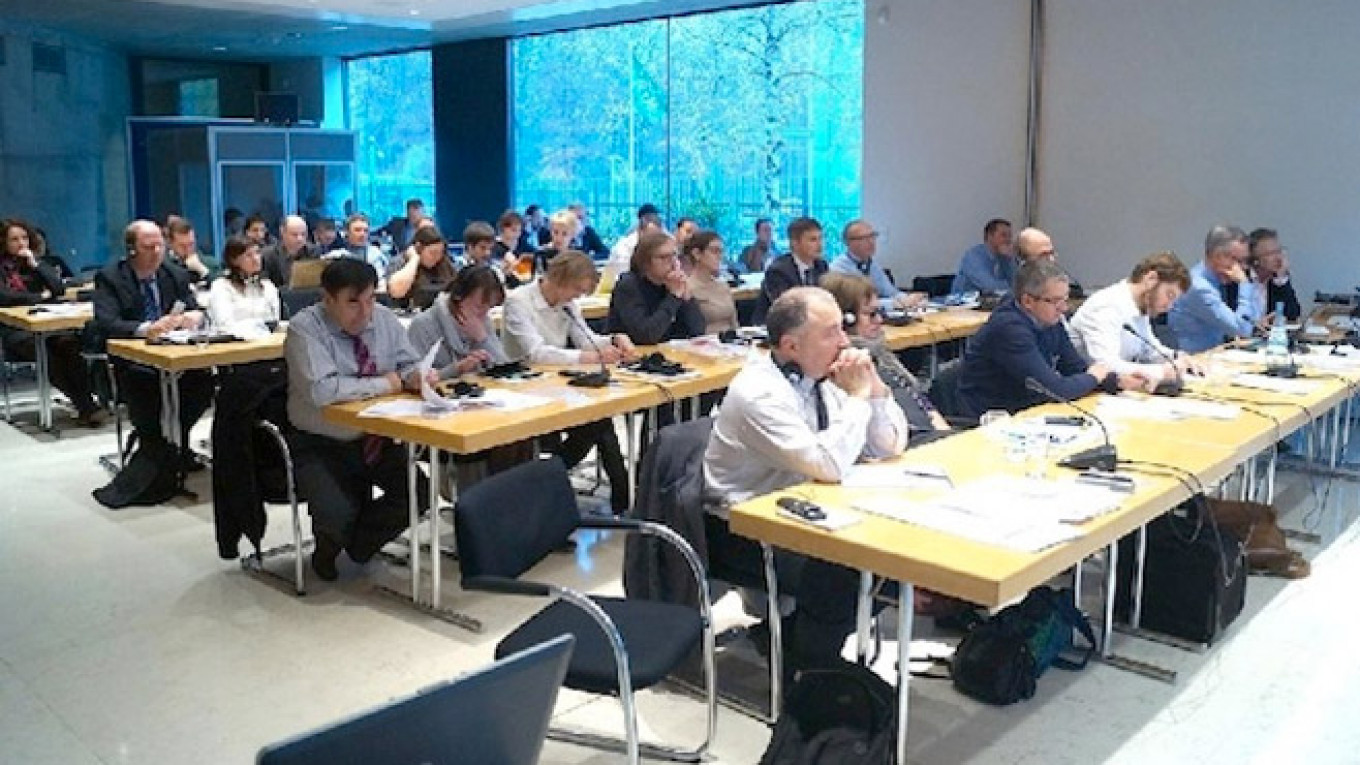The bad news just keeps coming. The Moscow School of Civic Awareness (MSCA) has been compelled to close its doors. The organization, formerly known as the Moscow School of Political Studies, had provided a venue for Russians from numerous regions to listen to intellectual leaders from around the world come and speak on issues related to politics, economics, media and art.
Because foreign donors had helped found the school, the authorities included it on their list of so-called "foreign agents."
Refusing to carry a label akin to the yellow Star of David that Nazi Germany forced Jews to wear, the school announced that it would cease operations.
Created more than 20 years ago by Yelena Nemirovskaya and Yury Senokosov, the MSCA was pure gold. I have honestly never seen anyone more selflessly and altruistically devoted to the idea of enlightenment than Yelena. She "placed her life on the altar" in the truest sense of those words.
It might seem simple enough to bring in any number of lecturers if you have money to offer. All across Russia, various organizations host forums and bring in celebrities such as U.S. political scientist Francis Fukuyama.
However, Yelena Nemirovskaya built something entirely unique during her 20-year labor of love.
The MSCA is practically the only venue in Russia that the world's intellectual elite know and respect so much that they are happy to speak there, sometimes on repeated occasions, for nominal fees or at no charge.
That is why the organizers always managed to find funding, win grants and convince wealthy donors that lectures on freedom and creativity are essential to society — without resorting to less honorable means for procuring support.
Have you ever heard of Anne Applebaum? Robert Skidelsky? Carl Bildt? Krzysztof Zanussi? I have purposely left out their titles and job descriptions. Find them on Wikipedia and then ask yourself where else someone could listen to all of them in person.
How else could a city official or journalist from one of Russia's outlying regions listen to, question and even debate leaders of thought and culture from around the world?
The law on "foreign agents" was adopted in order to prevent foreign powers from secretively using their money to influence Russian politics. But what connection is there between politics and civic education?
What is secretive about an organization that posted every single word spoken by its lecturers in the public domain and disclosed every penny and kopek of its financing?
It is not possible to overestimate the influence these lectures have had. Even ultraconservative State Duma Deputy Irina Yarovaya has attended talks at the MSCA, along with many other influential public figures.
This type of education is not propaganda. It has no ulterior motives, no "hidden agenda" and is always an engine of progress.
The MSCA was a force for pure good. The forces that compelled it to close are pure evil. Any law that causes this much damage should be repealed as soon as possible.
Konstantin Sonin, a columnist for Vedomosti, is professor of economics at the Higher School of Economics in Moscow.
A Message from The Moscow Times:
Dear readers,
We are facing unprecedented challenges. Russia's Prosecutor General's Office has designated The Moscow Times as an "undesirable" organization, criminalizing our work and putting our staff at risk of prosecution. This follows our earlier unjust labeling as a "foreign agent."
These actions are direct attempts to silence independent journalism in Russia. The authorities claim our work "discredits the decisions of the Russian leadership." We see things differently: we strive to provide accurate, unbiased reporting on Russia.
We, the journalists of The Moscow Times, refuse to be silenced. But to continue our work, we need your help.
Your support, no matter how small, makes a world of difference. If you can, please support us monthly starting from just $2. It's quick to set up, and every contribution makes a significant impact.
By supporting The Moscow Times, you're defending open, independent journalism in the face of repression. Thank you for standing with us.
Remind me later.






